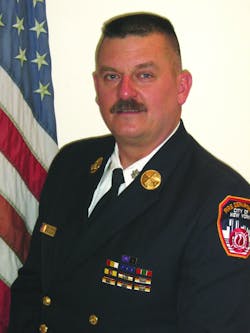I’m sure the title of this article made most of you think of money. Well, money is one of the issues when we are talking about being generous, but there is a whole lot more to it than money. Let’s take a look at what being generous is and how it can make your fire department a better place to serve.
This isn’t a leadership article, but it does apply to officers. It also applies to firefighters and every other rank or position you may have in your department. It applies to all of us because everyone has something to offer, and everyone’s contributions are valuable.
Generosity with time
As we all know, time—and I mean your personal time—is a very valuable commodity. Just living your life and working your job can be taxing on your schedule and leave little free time. So when we start talking about people who are generous with their time, we need to remember how truly generous they are. Being generous with your time can happen on duty at the firehouse or off duty on a weekend. It can be on drill night at the volunteer station or at a fire service seminar in a neighboring community.
I remember seeing a notice on the firehouse bulletin board for an upcoming seminar at another fire department in our area. When I looked a little closer, I saw my lieutenant’s name on line one of the sign-up sheet. Next to it he wrote, “Sign up guys—coffee is on me!” Needless to say, my name was quickly written on line two. Here is a company officer who is going to a fire service training event on his off-duty time. That is already being generous, but he also went one step further and added his note to attract more of the crew to attend as well. He is being generous with his time for both his own personal development and as a leader to improve his team’s development as well.
This generosity with your time does not have to be job-related all the time either. I have seen similar situations for a local charity or needy individual. After a fire in a private home that left a family with nothing, you will often see a flyer or other posting about a fundraiser or collection for that family. It’s usually the same generous members who sign up and pitch in for the worthy cause. Be generous with your time.
Generosity with knowledge
Generosity with your knowledge is an equally important habit. As I have said at many seminars, “Everyone in this room knows something you don’t know,” and boy is that the truth. I will have 40 years in the fire service this year and I still come home from seminars and classes with a pocketful of notes about issues, tactics and ideas that I have never heard of before. Share your knowledge every chance you get. If you are a company officer, it is part of your job description.
Take the time to share your technical and tactical knowledge with your crew. That starts with a well-planned and technically accurate drill or training session. Well-planned means you thought about it sometime before the moment you started the training. I used to keep a small spiral notebook with me when I was a company officer. In that notebook were 10–15 good, solid, accurate drills on common, often-used tactics, such as forcible entry, power saw operations and through-the-lock techniques. I drew simple graphics and included all the specific and practical information on the topic or skill. I was always ready to share that knowledge.
Officers in the FDNY often share their knowledge of the promotional process with their aspiring young firefighters. Having the technical knowledge is important, but these officers often stressed to young “students” the value of forming a study group with several other sharp firefighters to prepare for the upcoming exam. I remember seeing senior lieutenants and captains sharing their own personal “study schedules” with their firefighters so they could apportion their study time effectively on the historically probable areas of the tactics manuals from which questions often come. Be generous with your knowledge.
Generosity with opinions
Lastly, you should be generous with your opinions. I know everyone has an opinion and they all stink, but sometimes your opinion can have a positive effect on the performance, behavior and ability of the folks with whom you share it. Obviously, the opinion of a more senior firefighter or officer may hold more weight than one of a newer member, but both are probably the result of different experiences, education and training. Share your opinions, too.
About the Author
John J. Salka Jr.
Battalion Chief
JOHN J. SALKA JR., who is a Firehouse contributing editor, retired as a battalion chief with FDNY, serving as commander of the 18th battalion in the Bronx. Salka has instructed at several FDNY training programs, including the department’s Probationary Firefighters School, Captains Management Program and Battalion Chiefs Command Course. He conducts training programs at national and local conferences and has been recognized for his firefighter survival course, “Get Out Alive.” Salka co-authored the FDNY Engine Company Operations manual and wrote the book "First In, Last Out–Leadership Lessons From the New York Fire Department." He also operates Fire Command Training, which is a New York-based fire service training and consulting firm.

